Top 10 reasons to live in Thailand
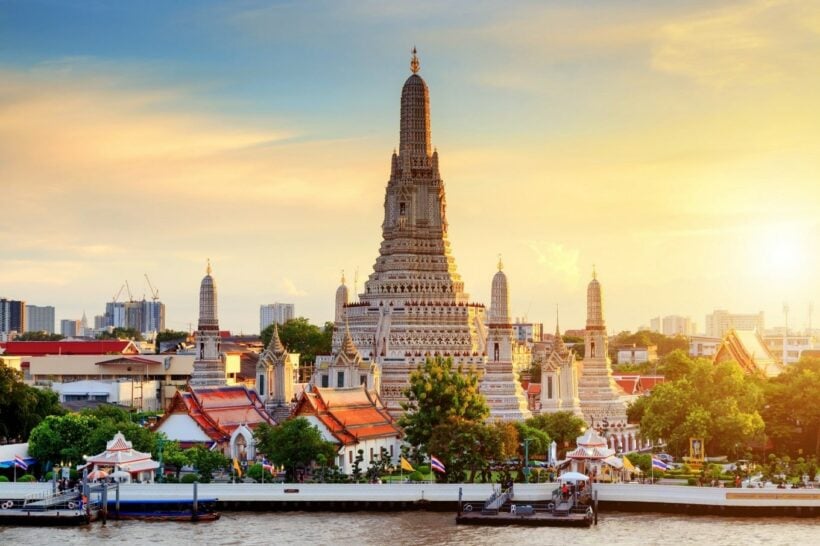
(10 minute read)
Let’s move to Thailand! Many travel to the Land of Smiles and some even stay, drawn by it’s culture, climate, opportunities, cost-of-living or maybe even ‘love’. Here are our top ten reasons to move to and live in Thailand.
1. The weather
Thailand’s weather, north to south, can vary quite a bit but most of the year it’s warm during the days wherever you are except in the far north where there are a few cooler months with cold nights. Thailand seems to avoid excesses in weather. Hot and humid but rarely over 35. Winds usually light to moderate but rarely over 25 knots and there are no tornadoes, hurricanes or cyclones. Rain can be quite heavy during the southern monsoon, even torrential, but the bursts are usually brief. But if warm, humid weather doesn’t suit you then most Thai locations won’t suit you either – it does get hot. Mind you there’s air con just about everywhere in the cities and tourist areas these days so it’s easy to escape the heat when you need to. Also, despite the initial shock to the body, you do acclimatise to the humid weather very quickly.
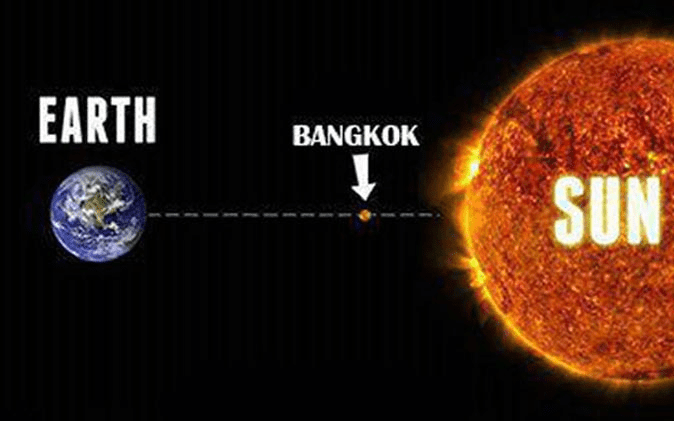
More about Thailand’s weather, location by location, HERE.
2. The culture
Thailand is one of the world’s most popular travel destinations. For good reason. As a culture the Thais are truly unique with a distinct culture including influences from ancient religions, past civilisations and a ‘mai phen rai’ (it doesn’t matter) attitude to life. There are plenty of generalisations people use to describe Thai people – polite, fun-loving, respectful – but there’s a lot more to it.
Thai culture is much more complex and nuanced than you will ever know. Even living in the country for many years, as a foreigner, won’t get you much closer to fully understanding the ‘Thai Way’. The best way to at least try and understand Thai culture is to immerse yourself in the festivals, celebrations and family life (when the opportunity arises).
In business, in love, in groups and as friends, Thainess is a long adventure that will equally confuse, enrage, engage and delight you.
Probably the most influential aspect of the culture is Buddhism, practiced more as a way of life than a daily worship, by 95% of Thais. It’s is version of Theravada Buddhism with its roots, as a sect, in Burma but with influences from the sub-continent (indeed Buddha was born in Nepal). A visit to Thailand would never be complete unless you visit a few temples – ornate, unique but, at the same time, ubiquitous and central to all family and community ceremonies.
Read more about Thai Buddhism HERE.
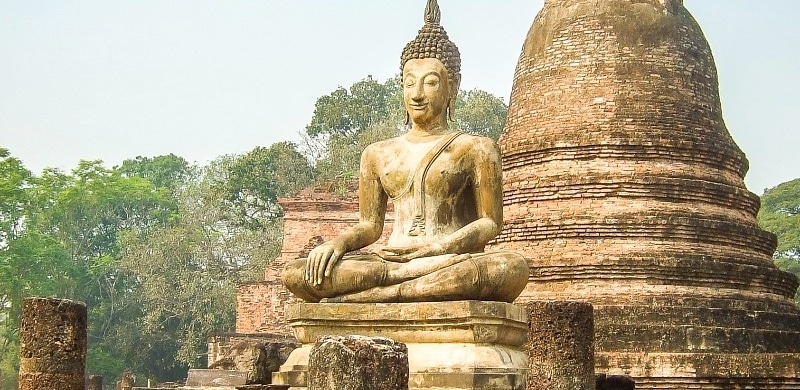
3. Choices
So you’re going to live in Thailand. But where? The country has many different ‘vibes’ which relate to regional cuisine, language, weather and cultural influences. With direct borders to Malaysia, Myanmar, Laos and Cambodia, there’s plenty of regional influences as well.
The easiest move to Thailand is to choose one of the main business or tourist centres where English-speaking Thais will be more plentiful making many aspects of your life easier. If English isn’t your main language then you’re going to need to brush up on some Thai language. Bangkok (obviously), Phuket, Pattaya, Chiang Mai, Samui and Hua Hin would be the main population centres where jobs may be easier to find and modern life conveniences at hand.
Bangkok is a big-bustling Asian city, with a soul and outstanding shopping, at all levels. Food is available just about anywhere and there’s plenty of reasons why the city is known as one of the world’s great gastronomic adventures.
Phuket is Thailand’s largest island and is all about beaches and the beautiful surrounding islands. It’s also the jump-off point in the south for Phang Nga, Krabi and the world-famous Koh Phi Phi.
Pattaya is the party capital, easy to get around and less than two hours out of Bangkok. If you want nightlife, Pattaya is hard to beat anywhere in Asia. The more it tries to shake off it’s red light reputation, the more visitors continue to flock to Sin City for its vivid night life. Be assured, no one goes to Pattaya for the beaches.
Chiang Mai is Thailand’s northern city with a unique Lanna culture, surrounded by hills. Natural beauty, more moderate weather and a slightly slower pace make Chiang Mai and nearby Chiang Rai a popular choice for retirees.
Koh Samui, or just plain ’Samui’, is the largest island in the Gulf of Thailand. It’s all about beach life but a little less crowded than Phuket, just a 45 minute flight away. It’s also a jump-off point for people travelling to Koh Pha Ngan and Koh Tao.
Hua Hin has been a favourite weekend break for Bangkokians for centuries and is now gaining favour with a growing expat crowd. A long stretch of beach and an increasingly popular hinterland, Hua Hin has everything you need for a break or a new life with the convenience of Bangkok, an easy three hour drive away.
Then there’s Esan (or Isan), Thailand’s north-east with the growing hubs of Ubon Ratchathani and Khon Kaen. Different festivals, different flavours, the Esan region is becoming a popular destination for tourists looking for more than just beaches and nightlife.
No matter where you choose to live in Thailand you will likely have an international airport at a nearby city and options to fly to all sorts of exotic locations in Asia and Europe with direct flights, particularly airports in Bangkok, Phuket, Pattaya and Chiang Mai.

4. The food
It’s hard to think of many other world cuisines that get people as excited as they do about Thai food. It can be spicy, pungent, exotic and an adventure in every bite. There is no single Thai cuisine, there are just hundreds of dishes that are all different. Opening up a menu in any Thai restaurant – and there is a Thai restaurant just about anywhere there are people or electricity – will provide you the most astonishing selection of choices. No matter whether it’s street food or fine-dining in a fancy restaurant, you will be hard-pressed to find ‘bad’ Thai food. Although the prices will differ, be assured that the street food will, most times, be equally amazing as the higher-priced options. Spicy? You bet!!! If you are new to Thai food, even asking for ‘mild’ spice may blow your socks off. And be warned, the Thai food you’ve been eating at Thai restaurants around the world is quite different to the local stuff which is likely to have much more zing and spice.
Relative to the cost of food in other countries, eating in Thailand can be very cheap, depending on where you live and how fancy the restaurant.
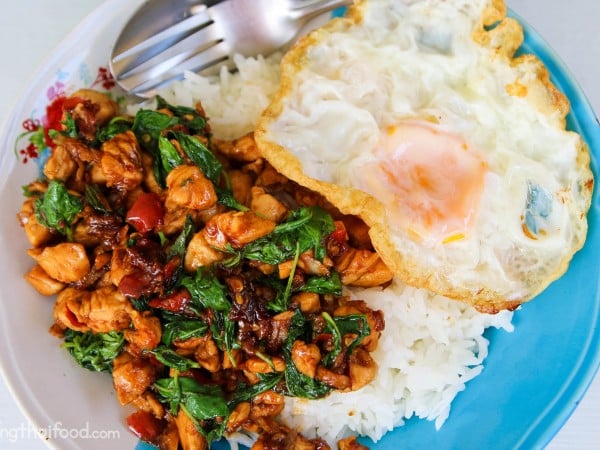
5. The Festivals
Fireworks, colour, smoke, noise, costumes, absence of occupational health and safety. That could describe any of the many, many festivals held around Thailand each year. Different regions, different festivals. Some reflect an ancient culture and a rich history, other make absolutely no sense but we enjoy them anyway. We’ll go through some of the main ones and a few you’ll NEVER see anywhere else in the world.
We’ll start with Songkran because that’s the start of the Thai new year. It’s held on April 13. Having already blown most of the budget on fireworks for the western new year on January 1 and the Chinese New Year festivities, this time they use water as a means of ‘purification’, saying goodbye to the country’s hot season and welcoming the monsoonal rains. It involves a lot of water. In the past it was a gentle festival held at temples washing Buddha images. Somehow it’s morphed into a huge water fight, in some places, running over many days up to week (in Chiang Mai and parts of Pattaya). Ladeling water gently onto Buddha statues has been replaced by all-out water fights, loud music, foam and a party that has no rules. If you’re outside during Songkran, especially in the main tourist zones, you WILL get splashed, probably drenched. The more the authorities try and play down the fun in Songkran the more tourists arrive each year determined to party in an event that’s somewhere between a video-game and the last half of ‘Titanic’.
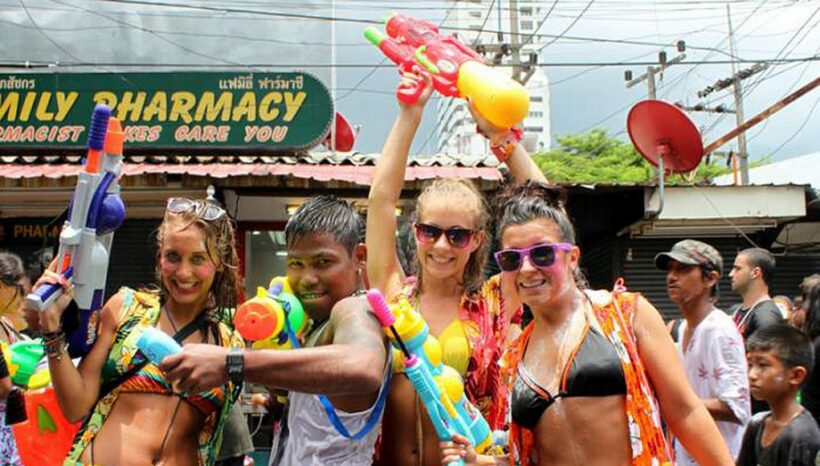
And that’s just ONE festival!
The Vegetarian Festival, principally held in Phuket with it’s Chinese heritage connections, is an assault on all your senses. Parades are held around the island by various community groups with participants wearing white and followed up by either one or many mah-song. These mah-song have been ‘possessed’ by a spirit and display tourettes-like ticks, grunts and choreography that suggests their claims may indeed be true. If it’s all an act, it’s a very convincing one because, apart from all the cavorting down the street, they also have their cheeks and other parts of their body pierced – not by an earring or something tame like that – we’re talking spears, swords, petrol pumps, guns. It’s insane! These days there’s an ambulance following behind and probably more mah-song succumb to blood loss than is ever reported.
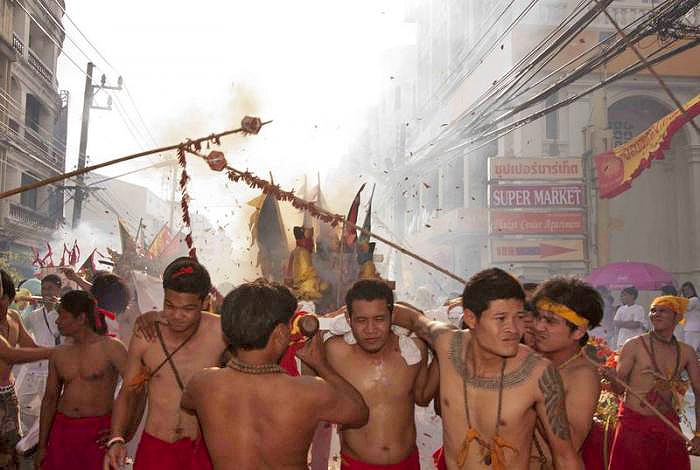
Phi ta khon (or Ghost Festival) is held in the Dan Sai district of north-eastern Thailand (near the Lao border) each year and usually follows a parade of people dressed up in rags with ghost masks. OK that’s colourful and fun enough. But they also carry with them large phallic axes which are meant to reflect… oh, Google it.
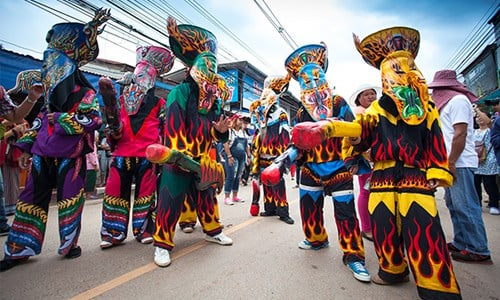
In Esan and around the Laos border areas there are many rocket festivals each year around May to June. Probably the biggest is the Yasothon Bun Bang Fai Rocket Festival. Imagine groups building their own rocket with the winner able to fire their rocket to the highest altitude. Like Songkran, the idea is to welcome in the forthcoming wet season (by piercing the sky to encourage rain). The rockets used to be made out of bamboo but are more likely to be constructed out of PVC pipes these days and powered by ‘black powder’ which is regulated by certain rules (we doubt this claim!!). So there’s gun powder, loud music, alcohol and men in competition to fire home-made rockets high into the Esan sky – what could possible go wrong?! Some of the rockets reach heights of several kilometres and can travel a lot further down range.
Read more about the rocket festivals HERE.
Chinese New Year is big in China and it’s also huge in Thailand. Partly because there are many ethnic Thai-Chinese born in Thailand but also because there are so many Chinese visiting the Kingdom these days. The Chinese New Year festivities stretch from shopping centre sales to regional street parades to ceremonies for families and businesses.
For a Buddhist country, Christmas is ironically enthusiastically celebrated. It involves presents, eating, celebrations, coloured lights and people spending money so it was always going to fly in Thailand. Thais remain completely bemused by Santa Claus, ‘baby Jesus’ and Christmas carols but, commercially, they’ve certainly embraced it now. I have never seen better decorations or a celebration of Christmas than I have in Bangkok. My best Christmas moment was when I found a statue of Santa Claus nailed to a cross – a slight cultural faux pas where they’d confused Easter and Christmas and come up with a perfectly ‘Thai’ Christmas decoration.

6. The kids
Thai children are genuinely cute, polite and always smiling when out in public. Somewhere between the ages of 7 and 8 up to 18 years, however, they become less cute and polite and, like teenagers just about anywhere else in the world, they become feral. Thai kids have the concepts of sanook (fun) and mai phen rai (it doesn’t matter) totally ingrained into their psyche and it must happen at an early age. They are truly delightful to interact with. Sometimes quite shy they can become very cheeky once you get to know them. If you’re having a bad day just say hi to some Thai kids and enjoy the smile.
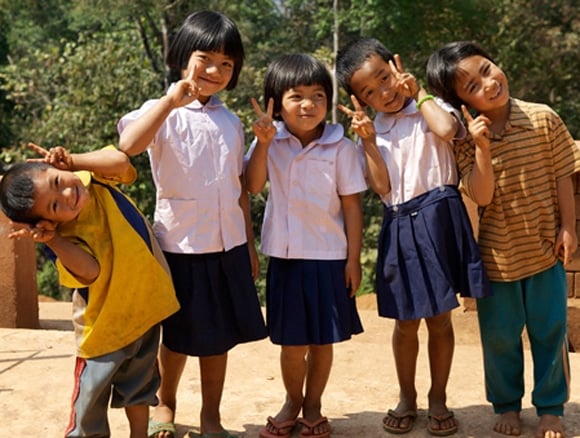
7. Thai time
Physicist, Stephen Hawking, probably better than other scientists, was able to describe the concept of time for our generation to grasp. None of this information has reached Thailand where time is truly elastic and changeable. Make an appointment with a Thai and be ready for an exasperating experience where ‘early’ means up to 30 minutes after the agreed time or ‘late’ can mean tomorrow or some time after that. This elasticity reflects just another aspect of ‘mai phen rai’ and ‘sabai sabai’ (relax). Whereas some westerners can get easily flustered by punctuality issues, Thais just see, generally, other things as being more important – family, eating, earning money for the day, eating, getting their hair cut or eating. The situation is slowly improving, especially in a business situations, but beware that making appointments in Thailand could lead to health issues and stress. At the same time the Thais are probably the smart ones and not letting punctuality get in the way of enjoying their family and the other important things in life.
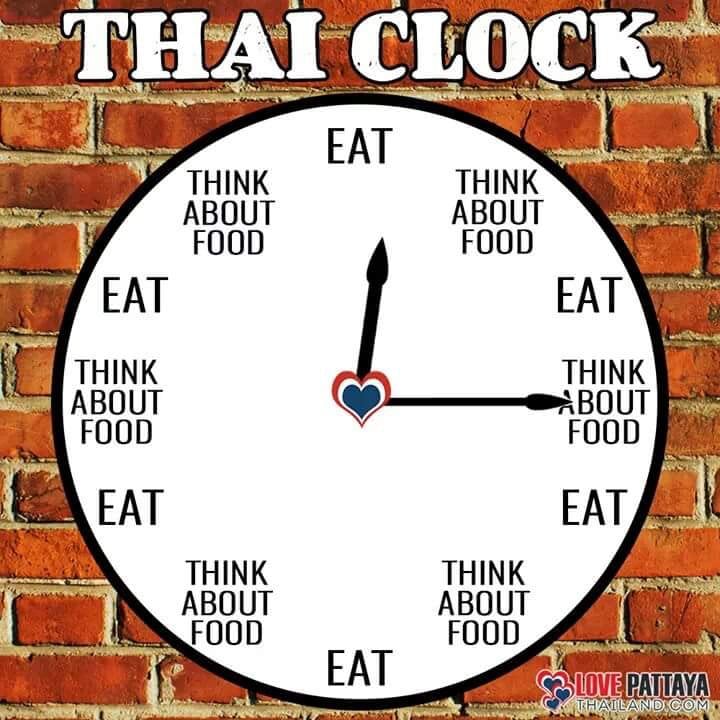
8. Flexible visas for a long-term stay
If you’re already an expat or frequent visitor you’re probably already on the floor in fits of laughter after reading a heading ‘Flexible visas’ in a list of reasons to move to Thailand. Hear me out…
There are lots of different visas for living and working in Thailand. This article is far from an exhaustive list. I’ll use the nicknames to describe the visas. To start with there’s the Retirement Visa (Geeza Visa) which allows citizens from most countries to live and retire in Thailand if you’re over 50 and have a minimum monthly income. You can’t work legally in Thailand with this visa but your earnings could come from outside the Kingdom and, mostly, the conditions aren’t too onerous.
For businesspeople you will need a Non B visa. You can also open a Thai company, a company bank account, hire Thai or foreign staff and conduct business in the Kingdom, under various restrictions.
There’s the new Smart Visa which is a four year visa and includes spouse and children. You will need to be earning more than 200,000 baht per month and this visa is for only certain occupations in the start-up, industry, medical and tech fields. There are also tourist visas, education visas and a few other variations. The bottomline is that the visas to live and work in Thailand are not expensive and relatively easy to get (if you fulfil all the conditions).
More about the Smart Visa HERE.
The problems arise in the lawyers used to get visas (some that call themselves immigration lawyers, aren’t) and the ‘flexible’ (some say haphazard) way some immigration officers apply the regulations. Around the Kingdom there also seems a shortage of immigration officers to keep up with the popularity of people wanting to live and work in Thailand. The 90 day reporting on most visas is also seen as onerous by many with the best attempts at putting the reporting online ‘patchy’ in their success.
Our only advice in all this is to find a reputable, professional lawyer (and hopefully recommended) and don’t try and take short-cuts. Immigration transgressions are not treated kindly by police and immigration officers.
Read more about visas in Thailand HERE.
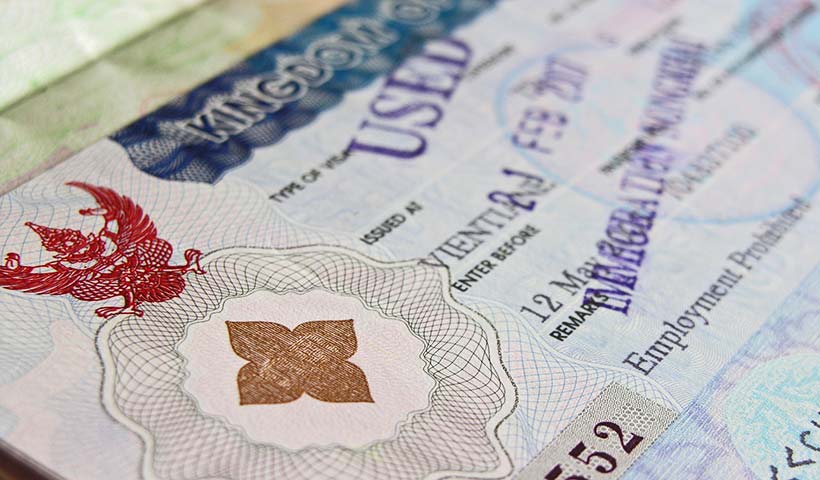
9. Safety
Thailand is a safe place to live. Yes, the road toll in Thailand is horrendous and there are all sorts of unlikely accidents in the tourists regions. But with 34 million visitors each year (2017) and more to come, there will always be headlines of tourists behaving badly, scams and incidents. But walking around the streets of Thailand should be considered safer than many other countries. This writer wouldn’t hesitate to walk just about anywhere at any time in Thailand. If you use common sense in your choices, especially when on Thai roads, you should be able to feel quite safe living in Thailand.
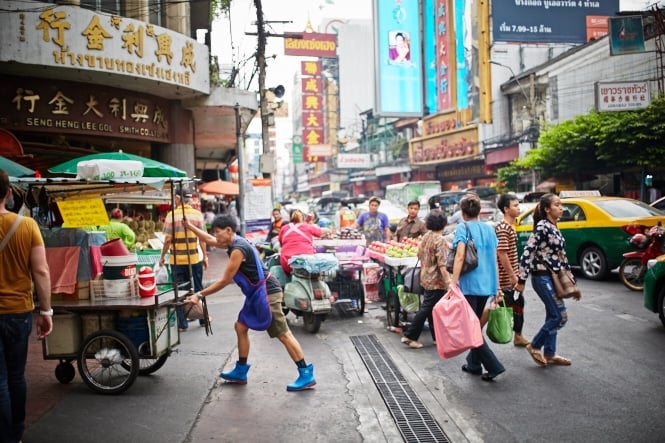
10. Find a ‘friend’ or even a partner
There is no denying that many have travelled to the land of smiles to partake in the relatively available ‘pleasures of the flesh’. Pattaya became popular after the end of WW2 and then had its credentials enthusiastically confirmed during the Vietnam War and in the years following, as a centre for R&R. The troops were encouraged to head there for a break from the toils of war, and they did. And so Thailand’s reputation as a ‘place of sin’ was started.
The World Health Organisation has estimated that there are up to 30,000 prostitutes working in Pattaya alone. You’ll also see many older, sometimes overweight, westerners walking hand in hand with young Thai girlfriends or partners. You don’t need to be a rocket scientist to understand that most of this is just ‘prostitution’ wrapped up in Thainess, in a country where, officially, prostitution is illegal. Of course there are many, many lovely Thai woman who marry overseas men and find long-lasting happiness. It’s rare though. The same situation exists for older western men and younger Thai men seeking a mutually beneficial arrangement.
Men Behaving Badly will continue to be a category of tourist coming to Thailand, in amongst all the other types of visitors, for the foreseeable future. Pattaya (along with Patpong and Soi Cowboy in Bangkok and Bangla Road in Phuket) are red light districts elaborately decorated and designed to extract money from paying customers, mostly for alcohol, but for anything else they may care to buy. Whilst the Thai government plays down this aspect of tourism in Thailand there’s no denying that it’s plainly available and no shortage of supply equalling demand.
On the seedy side, paedophiles and human trafficking are long term issues in Thailand that recent governments have been trying to vigorously address and clamp down on. Both are serious crimes in Thailand and perpetrators are caught often, tried and jailed.
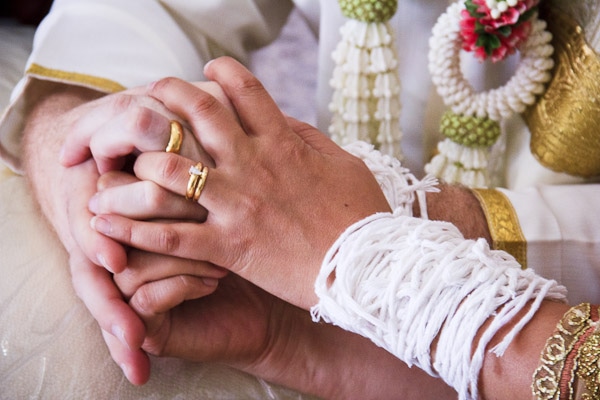
Latest Thailand News
Follow The Thaiger on Google News:


























